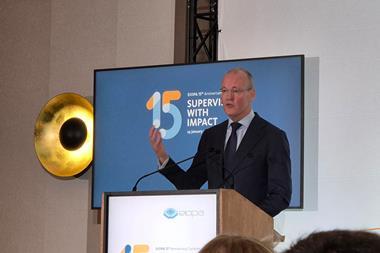GLOBAL - The Dodd-Frank Act is expected to drastically change the central counterparty (CCP) model due to the number of new competitors entering the clearing market and the willingness of investors to hedge "quickly, efficiently and, at the best prices", a new report has found.
In a report entitled 'SEF: The business landscape', the consultancy GreySpark Partners estimated that the US Dodd-Frank Act had led to increased interest from companies to register as clearing houses - or Swap Execution Facility (SEF) - due to the mandatory requirements for trading swaps.
According to the report, the increased number of SEFs would prompt banks and brokers to "scramble" to determine which of these outlets would provide them the functionality they need in order to continue facilitating swap transactions for their clients, including pension funds.
In spite of the increasing number of cleared trades, the consultancy nonetheless added that the current OTC market would continue to exist.
However, GreySpark also pointed out that the OTC market was increasingly set to become the "preserve of highly customised exotic deals that are likely to become less and less the norm", while the CCP model would likely support more plain vanilla trades.
Additionally, GreySpark argued that, as the credit market evolved, with capital adequacy rules under increasing scrutiny, OTC dealers would be less and less keen to warehouse corporate bonds to facilitate liquidity in the secondary markets.
"This in turn will give way to a move from the traditional 'buy and hold' trading model and to a subsequent rise in trading," it added. "Buyers and sellers will be able to express directional views and subsequent hedging will become more frequent."
The consultancy therefore estimated that, in a higher frequency dealing and price or spread competition environment, execution quality and speed would become more important as participants look to build reliable infrastructure to implement their credit trading strategies.
The same conditions would apply to the credit default swap (CDS) market, GreySpark said, with investors looking to hedge "quickly, efficiently and at the best prices".
The report noted that the size of the outstanding CDS market had been reduced markedly through central clearing and portfolio compression, with a large proportion of products now being centrally cleared.
Similar concerns about the drying up of the secondary market were raised at the International Capital Market Association conference in Milan in May this year.
Michael Ridley, managing director at JP Morgan, told the audience the measures within the Markets in Financial Instruments Directive II (MiFID II) and the Markets in Financial Instruments Regulation (MiFIR) - two European regulatory pieces which aim at limiting the time financial firms can delay publishing trade reports for derivatives trades - could dry up the secondary market even further and lead to higher premium to be paid by investors.
He therefore called on institutional investors to lobby "aggressively" against EU proposals - which are set to recapture some of the Dodd Frank act's elements and apply them to the European derivatives market participants.












